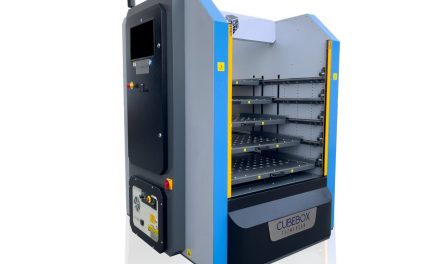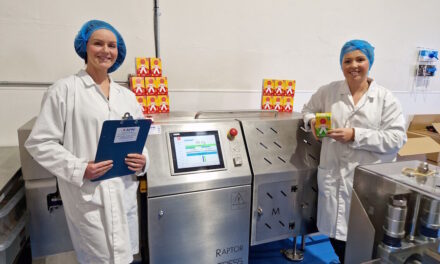Peter Schriddels, Category Development at McBride, the leading European manufacturer of Private Label household products, discusses product compaction and why it’s important that manufacturers continue to innovative to maintain relevance in a market increasingly shaped by sustainability, and to foster consumer loyalty and positive brand perception.
Product compaction has become a significant industry trend in recent years due to its dual focus on environmental sustainability and economic efficiency. As consumers and retailers prioritise sustainable cleaning practices, compaction effectively reduces the size and weight of products – thereby reducing packaging waste and enabling more cost-effective transportation, without compromising on product efficacy.
When we talk about compaction, it’s important to differentiate between simply reducing the amount of matter to create a smaller finished product size, and concentrating a formulation to retain the same performance.
Private Label products must deliver the highest quality to maintain their performance for consumers, so concentration is where research and development teams efforts should be focussed with a continuous strive to innovate.
For example, there is a considerable amount of water used in many laundry detergent formulations, which offers great potential to further concentrate the active ingredients by simply reducing this volume. And, by concentrating the formulation, laundry capsules can be reduced in size too.
Driving cost savings and affordability
Compaction plays a crucial role in enhancing product affordability for end-consumers. With rising inflation and cost of living pressures, both retailers and manufacturers are focusing on compaction as vitally important to reducing the cost of finished products. The shift towards compaction technologies is seen as a key driver for sales at a time when householders are looking for cost savings, without compromising quality.
By reducing the amount of packaging and product material, the overall cost of products can be lowered, making them more accessible to a wider range of consumers. We have found this is particularly evident in the laundry detergent category for example, where our new formulation capsule delivers the same cleaning power as previous, larger-sized capsules.
Promoting sustainable practices
Product compaction goes beyond cost savings; it also serves as a powerful tool for promoting sustainable practices. By reducing the amount of packaging material, environmental footprint can be minimised too.
For example, in the UK, retailers are keen to reduce plastic and waste to meet their sustainability targets, but we are seeing differences across regions and Europe has been slower in some areas to adopt compaction.
Moving to smaller or more concentrated dosages allows packaging size to be reduced, which takes up less space, making transportation more efficient. This is beneficial in terms of both fuel consumption and logistics costs.
With smaller and lighter packaging, more products can be transported in a single shipment, reducing the overall energy and resources required for distribution. Improved transportation efficiency can also lead to lower greenhouse gas emissions associated with the shipping and delivery of cleaning products.
Maintaining performance
We have seen a shift in recent times with consumers moving from brands to Private Label. However, it is important to ensure we are satisfying the market with high quality products.
This is exemplified in the Auto-Dishwash and Anti-Calc category, where we have successfully compacted tablets without compromising cleaning performance, while reducing packaging waste.
Performance is measured in tiers against branded products, and during times of higher inflation, we have seen products on the market lowering cleaning performance. This may reduce the size, and associated packaging and transportation costs, but without using compaction technologies, cleaning efficacy ultimately suffers.
Expanding compacted product offerings
In the current climate, it is imperative that manufacturers are committed to expanding their range of compacted products across various categories. Recognising the growing consumer demand for sustainable and cost-effective products, the industry needs to continuously innovate to meet these evolving needs.
With a clear vision for the future, a dedication to strengthening our portfolio of compacted products is essential, ensuring that consumers have access to sustainable and affordable options.
Staying ahead of the curve
Looking to the future, we believe industry-wide trends will shift more towards compacted products, and with a focus on innovation and sustainability, McBride is poised to remain at the forefront.
Usability could become a challenge, and unit dosing could become more difficult as products reduce in size, with the risk of the consumer overusing. Auto-dose machines could become more commonplace in the home; however, this kind of technology is very expensive so adoption would be a slow process.
Ultimately, a manufacturer’s dedication to product compaction should not be limited to its current offerings. By actively engaging in research and development, and continuously exploring new opportunities to further enhance product lines through compaction, the industry can become more sustainable – both in terms of affordability to consumers and to the planet.




